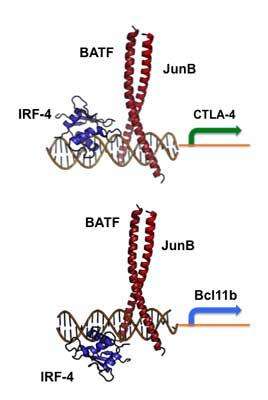Study finds new molecular pathways involved with autoimmune diseases, potential implications for therapies

Teamwork between a pair of transcription factors may be responsible for regulating the functioning of Th17 cells, which when found in excessive amounts are believed to play a major role in many autoimmune diseases, according to a study published last week in the journal Science by a national team of researchers.
The findings may help researchers develop potential therapies against autoimmune disease such as multiple sclerosis, psoriasis, juvenile diabetes, rheumatoid arthritis and Crohn's disease.
The collaborative study was led by researchers at Genetech, Inc., in San Francisco, and included researchers from the Virginia Commonwealth University School of Medicine, the Howard Hughes Medical Institute in Chevy Chase, Md., the Washington University School of Medicine in St. Louis, the University of Chicago, New York University and the M.D. Anderson Cancer Center in Houston.
The team reported on new composite DNA sites that included binding sites for both IRF4 and BATF. The composite sites had variations in the spacing separating the two individual sites leading to different arrangement of the two transcription factors. Transcription factors serve as traffic coordinators, controlling the flow of genetic information from DNA to mRNA.
The study shows that this different arrangement leads to the activation of different genes. Activation of several genes during differentiation of Th17 cells is promoted by the partnership of IRF4 and BATF.
"The work shows for the first time that the transcription factors IRF4 and BATF through cooperative binding to composite DNA sites are critical for the differentiation of T helper 17 cells," said study contributor Carlos R. Escalante, Ph.D., assistant professor in the Department of Physiology and Biophysics in the VCU School of Medicine. Escalante was involved in the generation of the atomic models of the different IRF4-BATF-DNA complexes.
















